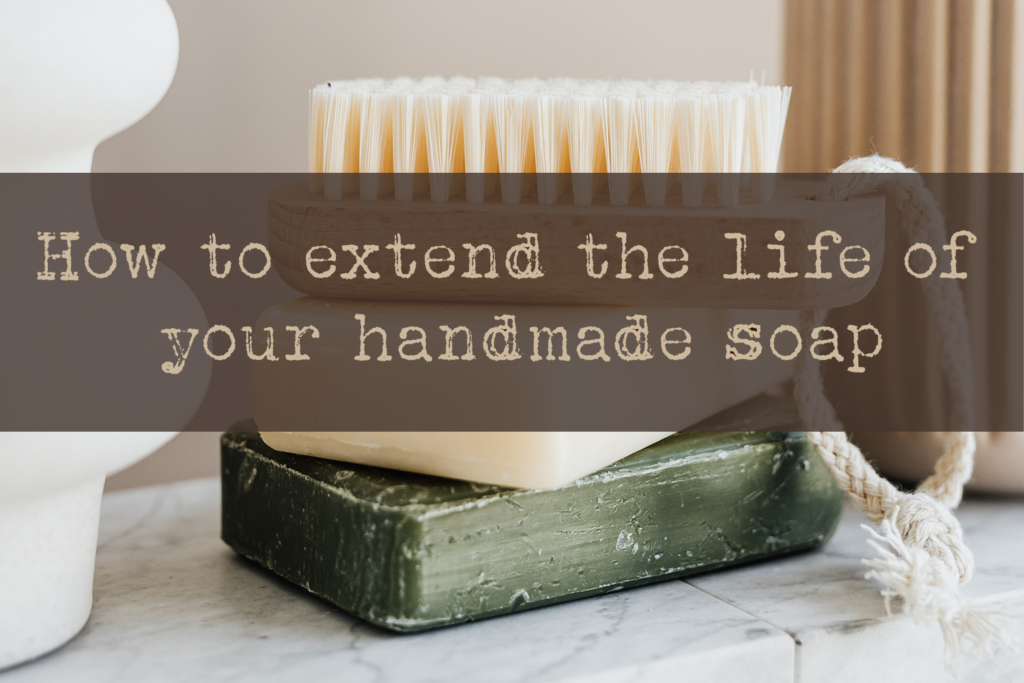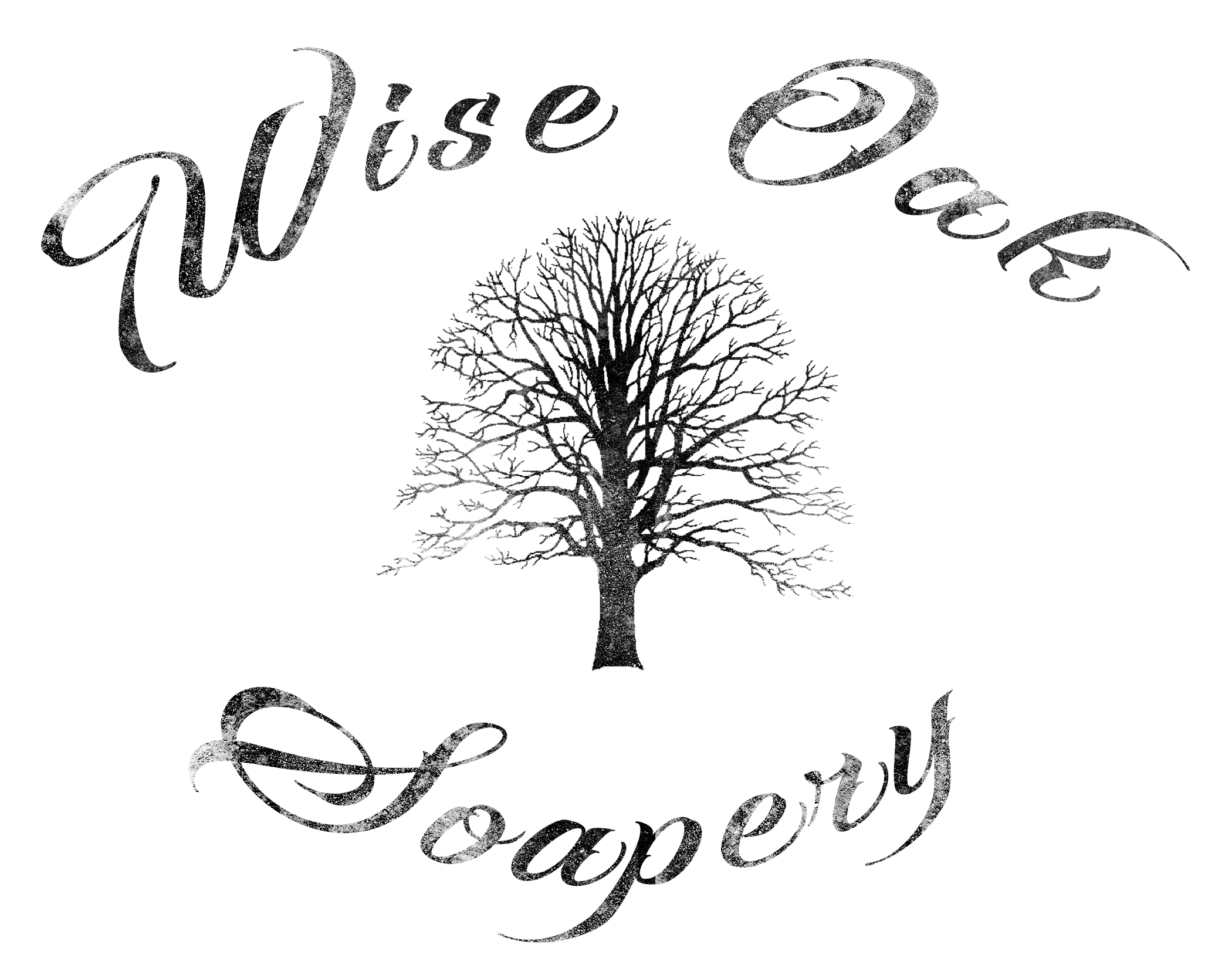Handmade soap is different than commercial soap in a variety of ways. One being that the naturally produced glycerin is retained, whereas it is removed from commercial soaps so it can be sold in other products.
Removing the glycerin leaves the bars harder but also much less moisturizing. This, along with the fact that many are made with drying, toxic detergents mean that the soaps last longer without further effort.

Also, triple milling and quadruple milling also add longevity to the life of the soap, making a harder bar, but they too can be much less moisturizing since milling removes the glycerin and additional moisture.
So, how can you make your bar of handmade soap last longer?
- Dry your soap between uses – because handmade soap contains glycerin, it must be allowed to fully dry between uses.
- Store your soap outside of the shower on a soap dish (like this one) that allows the soap to fully drain off the water. I keep mine on a table next to my shower and reach out to grab it when I’m ready to use it.
- Store soap bars that you are not yet using outside of the bathroom. I recommend storing them in the hallway linen closet. Plus, it will also make your linens smell great!
- Use a wash cloth or cotton loofah to extend the life of the soap instead of rubbing the bar directly on your skin. This will use the soap faster.
- Keep your soaps out of heat, moisture and direct light as all of these things will affect the life of the scent and hardness of the soap.
- When bathing in the bathtub, do not submerge the soap in the water. Wet it under the spout and use a wash cloth or cotton loofah to wipe the soap with for rubbing on your skin. A quick dip in the water would be ok, too, but be sure to place it back on the soap dish right a way.
Remember, natural soap LOVES to breathe and needs lots of dry air to harden
Did you know when handmade soap is made, it starts as a liquid and hardens once it is poured into the molds? Once it is hard enough, the soap is removed from the mold, cut and then placed on racks to cure. This curing process not only allows the lye to neutralize but also allows the bars to fully harden as the water evaporates.
Depending on the oils used and the amount of water, soaps may take 6 weeks to a year to cure.
